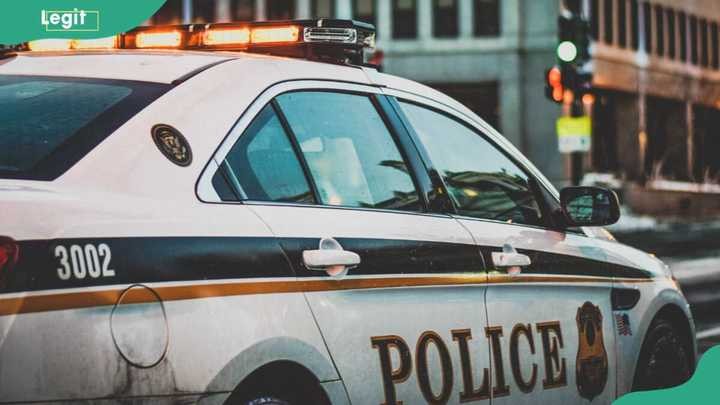The police force, a cornerstone of modern society, has been around since the 19th century, originating in the United Kingdom with the Metropolitan Police in 1829. Over time, various slang terms have emerged to refer to law enforcement officers. One popular term, particularly in certain regions, is “12.” But Why Is Police Called 12? This article delves into the origins and theories behind this intriguing slang term.
What Does “12” Actually Mean?
“12” is predominantly used as a slang term for police officers, especially in areas like Atlanta, Georgia, and across the Southern United States. The term’s connotation can vary depending on the speaker’s intent. It can be used negatively, as an insult or dismissal, or neutrally as a simple descriptor. In some contexts, it might even be used in a more lighthearted or familiar way. Regardless of the tone, “12” serves as an identifier for law enforcement in informal conversation and particularly within certain subcultures.
Exploring the Theories: Unpacking the Origins of “12”
While the exact origin of “12” as a police slang term remains somewhat shrouded in mystery, several compelling theories attempt to explain its emergence and popularization.
The 10-12 Police Radio Code Theory
One prominent theory links “12” to the police radio code “10-12.” In law enforcement radio communication, “10-codes” are used for brevity and clarity. The code “10-12” traditionally means “stand by” or “wait.” It’s suggested that over time, the “12” part of the code became detached and began to be used as a shorthand to refer to the police themselves, possibly as a way to signal their presence discreetly or quickly. This theory posits that individuals familiar with police radio codes may have adopted “12” as a convenient slang term.
The ACAB and 1312 Connection
Another theory connects “12” to the controversial acronym ACAB, which stands for “All Cops Are Bastards.” In this theory, ACAB is numerically translated using the alphabetical positions of the letters: A is the 1st letter, C is the 3rd, and B is the 2nd, resulting in “1312.” It’s theorized that “1312” was then further shortened to simply “12” as a quicker and more subtle way to refer to the police, particularly in contexts where using the full acronym ACAB might be too explicit or confrontational.
The “Adam-12” TV Show Influence
A third theory, rooted in popular culture, points to the classic police television show “Adam-12.” This show, which aired from 1968 to 1975, followed the daily lives of two Los Angeles Police Department officers in their patrol unit, designated “1-Adam-12.” The show was highly popular and influential in shaping public perception of law enforcement. It’s plausible that the repeated exposure to “Adam-12” and the “12” unit designation within the show contributed to the association of “12” with police in the public consciousness, eventually leading to its adoption as slang.
Why is “12” Used as Slang for Police?
Regardless of the exact origin, the reasons for using “12” as slang for police are multifaceted:
- Alerting Others: “12” serves as a discreet way to warn people about the presence of law enforcement in an area. This can be useful for individuals who want to avoid police contact for various reasons.
- Informal Communication: Slang terms like “12” offer a more informal and sometimes coded way to talk about the police, particularly in casual conversation or within specific groups.
- Pop Culture Influence: The term “12” has been further popularized through music, movies, and other forms of pop culture, embedding it deeper into the lexicon as a recognizable slang for police. For instance, the use of “12” in the 1995 movie Friday helped solidify its place in popular slang.
When Did “12” Become Police Slang?
The term “12” began gaining traction as a slang term for police in the late 1960s. This timeframe aligns with the airing of the “Adam-12” TV show and the period when 10-codes were in common use in law enforcement radio communication. The slang quickly spread, becoming integrated into popular culture and continuing to be used today, particularly in specific regions and communities.
Frequently Asked Questions
-
Where does the word “police” come from? The term “police” originates from the Greek word “politeia,” meaning “citizenship” or “government.”
-
Where did the concept of a professional police force begin? The idea of a professional police force started in the United Kingdom in the early 19th century.
-
What was the first official police force called? The first professional police force was the Metropolitan Police, established in London.
-
So, why are cops called 12? “12” is used as slang to alert people to the presence of law enforcement nearby, allowing individuals to be aware of police activity in the vicinity.
-
When did people start calling police “12”? The use of “12” as police slang became noticeable in the late 1960s and has persisted since then.
-
Is using “12” disrespectful to police officers? The term “12” itself is not inherently disrespectful, although the intent and tone in which it is used can certainly convey disrespect.
In Conclusion: The Enduring Mystery of “12”
Why is police called 12? The answer isn’t definitive, but the term likely arose from a combination of factors, including police radio codes, counter-culture expressions, and popular television. Regardless of its precise origin, “12” has become a widely recognized slang term for police, primarily functioning as a way to signal and acknowledge law enforcement presence, particularly within specific communities and in popular culture. The term’s continued use highlights the evolving language surrounding law enforcement and the various ways people communicate about authority figures in society.
